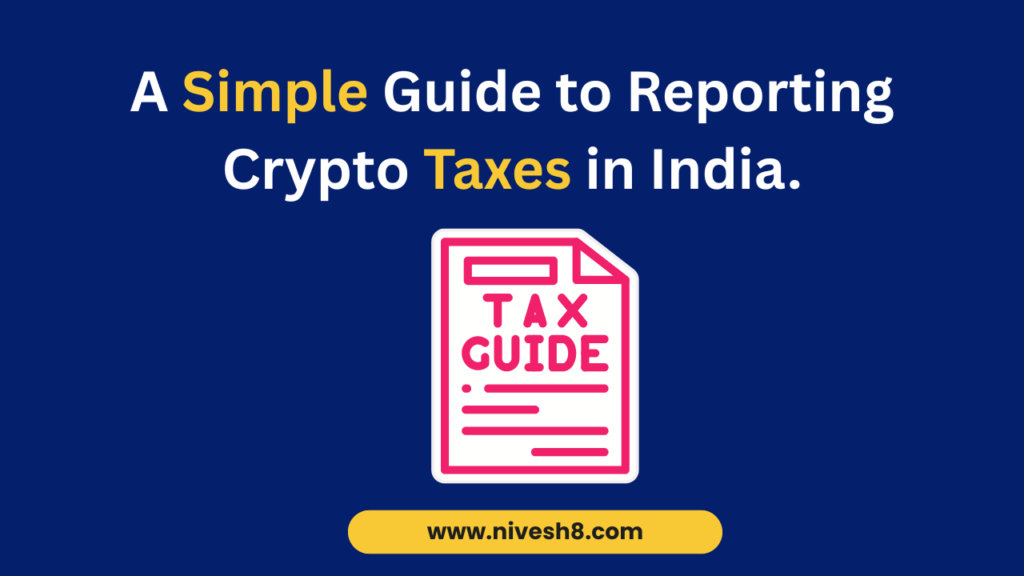If you have crypto-generated income, you should start considering taxes and go beyond mere profits. Particularly after the government adopted new regulations, many Indians are unsure about reporting crypto taxes. Not as difficult as it sounds, thus you should not worry.
Let’s go over the fundamentals of keeping compliant while reporting crypto taxes.
Does using cryptocurrency call for paying taxes?
Definitely yes. Officially bringing Virtual Digital Assets (VDAs) including Bitcoin, Ethereum, and NFTs under the tax code from 1st April 2022, the Indian government
You must thus report it and pay the relevant tax whether you are trading, investing, or even giving cryptocurrency.
Key Guidelines for Documenting Crypto Taxes
- 30% flat tax on any income (no slab advantage)
- Every sale or transfer has 1% TDS deducted by the platform.
- No set-off of losses; cannot counter against other gains
- Not allowed any deductions; only the cost of purchasing the cryptocurrency is allowed.
- If over ₹50,000 and not from a close relative, gifts of cryptocurrencies are taxable.
Where on your ITR should you record crypto income?
Your Income Tax Return (ITR) needs you to report crypto income.
Most people will find it to fit:
- “Income from Other Sources,” or
- “Capital Gains,” contingent on your trading activity
Should you be a consistent trader, the income could be regarded as business income.
Report every transaction clearly using the correct ITR form—usually ITR-2 or ITR-3.
Guidelines for Noting Crypto Taxes
- Track every transaction: date, buy or sell price, quantity, platform
- Verify profit or loss on every transaction.
- Add the TDS already deducted; you could be entitled for credit.
- Clearly state in your return crypto income.
- Pay the thirty percent tax on net income plus surcharge and cess.
What would happen if you omitted reporting?
- The Income Tax Department might notifies you
- Unpaid taxes could result in penalties or interest.
- Platforms are now sharing information with the government; hence, skipping taxes runs a danger.
Tools That Might Be Useful
- WazirX, CoinDCX reports from your exchange or crypto tax software
- Engage a CA or tax consultant knowledgeable in cryptocurrencies.
- Use Form 26AS to record TDS entries.
Thought at Last
Although at first reporting crypto taxes can seem perplexing, in India financial life now revolves around this regular occurrence.
Don’t wait until the last minute; track your income, report honestly, and timelyly file your return.
Being cryptocurrency smart also means being tax smart!

